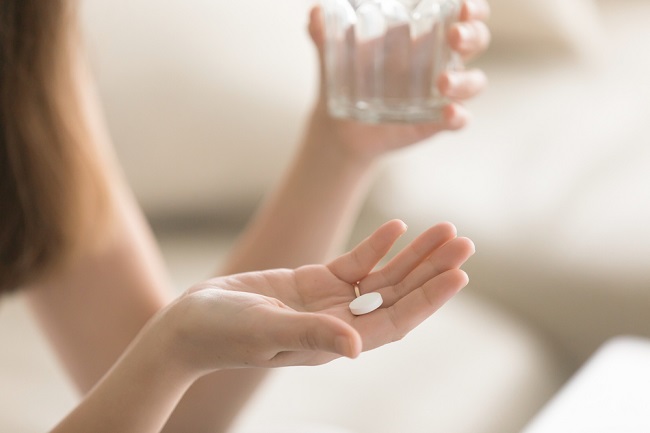Avifavir is an antiviral drug that contains favipiravir. This drug has received an emergency use permit from the Indonesian Food and Drug Supervisory Agency (BPOM) for use in the treatment of COVID-19, that is in patients aged 18 years to the topwith mild to moderate symptoms.
Avifavir was developed in Russia, by Russian Direct Investment Fund and ChemRar Group. Avifavir contains favipiravir. Favipiravir works by inhibiting the work of the RNA polymerase enzyme needed by viruses to reproduce.

Favipiravir is usually used to treat infections caused by the influenza virus. Because the use of favipiravir for Corona virus infection is still new, its effectiveness and safety in the treatment of COVID-19 is still being monitored.
What is Avifavir
| group | Anti Virus |
| Active Ingredients | Favipiravir 200 mg |
| Category | Prescription drugs |
| Benefit | Overcoming influenza virus infection and COVID-19 |
| Consumed by | Adults 18 years old |
| Avifavir for pregnant and lactating women | Category X: Studies in experimental animals and humans have demonstrated fetal abnormalities or a risk to the fetus. Drugs in this category should not be used in women who are or are likely to become pregnant. It is not known whether Avifavir is absorbed into breast milk or not. If you are breastfeeding, do not use this medicine without consulting your doctor first. |
| Drug form | Film-coated tablets |
Precautions Before Taking Avifavir
Avifavir can only be used according to a doctor's prescription. There are several things that must be considered before using this drug, including:
- Tell your doctor about any allergies you have. Avifavir should not be given to patients who are allergic to this drug or to favipiravir.
- Tell your doctor if you are pregnant, breastfeeding, or planning a pregnancy. Avifavir should not be used in women who are pregnant or planning to become pregnant.
- Tell your doctor if you have or are currently suffering from gout, immune system disorders, mental disorders, liver inflammation, fungal infections, asthma, tumors, or bacterial infections, including tuberculosis.
- Tell your doctor if you have or have recently had shock, respiratory failure, arrhythmia, or heart attack.
- Tell your doctor if you are on dialysis or have received an organ transplant.
- Tell your doctor if you are addicted to alcohol or have ever experienced drug abuse.
- Tell your doctor if you are taking any other medicines, including herbal medicines and supplements.
- Call your doctor right away if you have an allergic reaction to a drug or an overdose after using Avifavir.
Dosage and Use of Avifavir
The exact dose of Avifavir is not yet known to treat COVID-19. In phase II and III studies, the dose of Avifavir used in the treatment of COVID-19 was 1600 mg, twice daily on the first day, followed by 600 mg, twice daily on day two to day fourteen.
The use of Avifavir to treat Corona virus infection will be considered by doctors according to the severity of the disease and the patient's condition.
How to Take Avifavir Correctly
Avifavir should only be taken as prescribed by a doctor. Do not increase or decrease the dose, and do not use the drug more than the recommended time.
Avifavir can be taken with or without food. However, to prevent stomach pain, it is recommended to take this drug with food or after eating.
Make sure there is enough space between one dose and the next. It is recommended to take avifavir at the same time each day.
Store Avifavir in a closed place in a cool temperature. Do not store it in a humid place or in direct sunlight. Keep this medicine out of reach of children.
Avifavir Interactions with Other Drugs
According to ongoing research, when used together with certain drugs, the favipiravir content in Avifavir can cause drug interactions in the form of:
- Decreased effectiveness of amiodarone, atorvastatin, lovastatin, carbamazepine, chloroquine, cisapride, diclofenac, diltiazem, enzalutamide, erlotinib, ethinylestradiol, or ifosfamide
- Decreased effectiveness of ketamine, ketorolac, ibuprofen, piroxicam, lansoprazole, omeprazole, methadone, nicardipine, naproxen, repaglinide, sorafenib, theophylline, tretinoin, verapamil, or warfarin
- Increased risk of side effects from acyclovir, benzylpenicillin, cefalor, bisoprolol, captopril, cefdinir, cefazolin, citrulline, dexamethasone, digoxin, estradiol, everolimus, famotidine, allopurinol, or fexofenadine
- Increased risk of side effects of grazoprevir, hydrocortisone, indacaterol, lenvatinib, morphine, nintedanib, oseltamivir, quinidine, paliperidone, ranitidine, simvastatin, tetracycline, vincristine, or zidovudine
Side Effects and Dangers of Avifavir
The content of favipiravir in Avifavir can cause some complaints if used in excess. Some complaints that can appear are vomiting, weight loss, and movement disorders. However, further research is still needed to prove these side effects.
Immediately consult a doctor if you experience these complaints or other side effects after taking Afivafir, as well as if you experience an allergic reaction to the drug, which can be characterized by an itchy rash on the skin, swelling of the lips and eyelids, or difficulty breathing.









